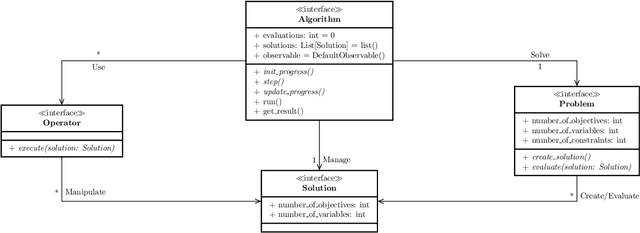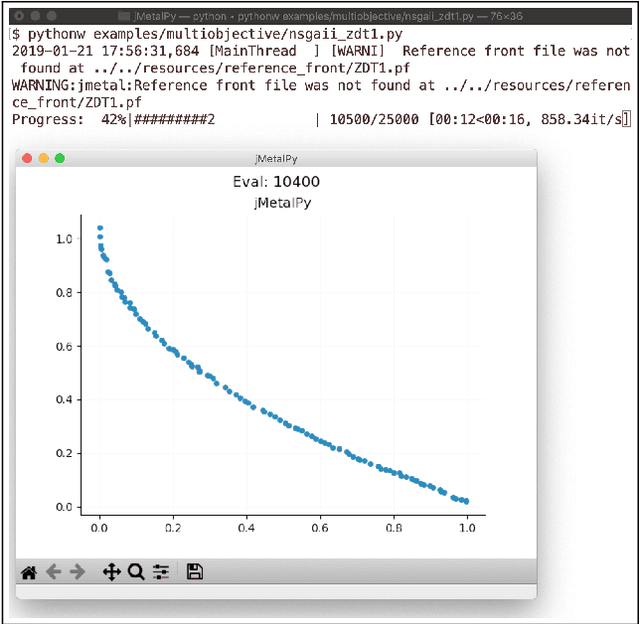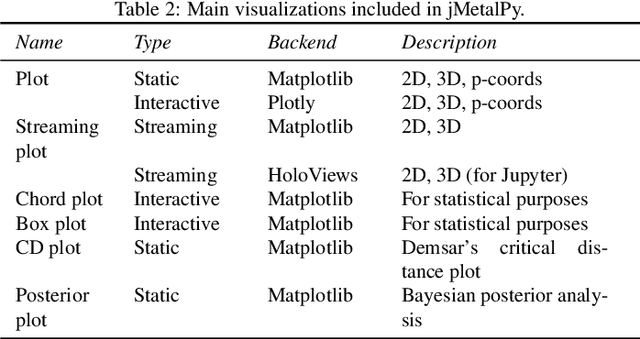Antonio J. Nebro
A Tutorial on the Design, Experimentation and Application of Metaheuristic Algorithms to Real-World Optimization Problems
Oct 04, 2024



Abstract:In the last few years, the formulation of real-world optimization problems and their efficient solution via metaheuristic algorithms has been a catalyst for a myriad of research studies. In spite of decades of historical advancements on the design and use of metaheuristics, large difficulties still remain in regards to the understandability, algorithmic design uprightness, and performance verifiability of new technical achievements. A clear example stems from the scarce replicability of works dealing with metaheuristics used for optimization, which is often infeasible due to ambiguity and lack of detail in the presentation of the methods to be reproduced. Additionally, in many cases, there is a questionable statistical significance of their reported results. This work aims at providing the audience with a proposal of good practices which should be embraced when conducting studies about metaheuristics methods used for optimization in order to provide scientific rigor, value and transparency. To this end, we introduce a step by step methodology covering every research phase that should be followed when addressing this scientific field. Specifically, frequently overlooked yet crucial aspects and useful recommendations will be discussed in regards to the formulation of the problem, solution encoding, implementation of search operators, evaluation metrics, design of experiments, and considerations for real-world performance, among others. Finally, we will outline important considerations, challenges, and research directions for the success of newly developed optimization metaheuristics in their deployment and operation over real-world application environments.
jMetalPy: a Python Framework for Multi-Objective Optimization with Metaheuristics
Apr 17, 2019



Abstract:This paper describes jMetalPy, an object-oriented Python-based framework for multi-objective optimization with metaheuristic techniques. Building upon our experiences with the well-known jMetal framework, we have developed a new multi-objective optimization software platform aiming not only at replicating the former one in a different programming language, but also at taking advantage of the full feature set of Python, including its facilities for fast prototyping and the large amount of available libraries for data processing, data analysis, data visualization, and high-performance computing. As a result, jMetalPy provides an environment for solving multi-objective optimization problems focused not only on traditional metaheuristics, but also on techniques supporting preference articulation and dynamic problems, along with a rich set of features related to the automatic generation of statistical data from the results generated, as well as the real-time and interactive visualization of the Pareto front approximations produced by the algorithms. jMetalPy offers additionally support for parallel computing in multicore and cluster systems. We include some use cases to explore the main features of jMetalPy and to illustrate how to work with it.
 Add to Chrome
Add to Chrome Add to Firefox
Add to Firefox Add to Edge
Add to Edge